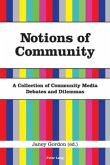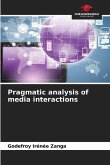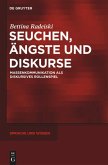The main concern of this work is to tackle manipulation in communicative events as one of the means used by politicians to achieve certain goals such as influencing the behavior, desire, belief and emotions of others to their self-interests without evident detection of their communicative intention.
As a communicative event and from a pragmatic point of view, manipulation in the political field has not been given enough attention. Thus, this study scrutinizes the pragmatic aspects of manipulation in British and American political debates. As such, it sets itself the task of achieving several aims, the most important of which are: (1) specifying the pragmatic criterion/criteria according to whose presence a certain political debate is considered as manipulative, (2) identifying the manipulation types used by politicians and the pragmatic strategies via which each type is fulfilled, (3) exhibiting the whole pragmatic structure of manipulative, whether British or American, political debates, (4) pinpointing both the manipulative pragmatic strategies used to fulfill each sub-stage (component) and manipulative strategies adopted to attain all the sub-stages (components) of the entire pragmatic structure of manipulation, (5) highlighting the manipulative pragmatic strategies, the manipulative strategies, as well as the manipulation types highly resorted to by politicians in political debates, (6) showing transparent inter/intra-differences that can be detected in terms of the debater's employment of manipulation types, the whole pragmatic structure of manipulation, the manipulative pragmatic strategies, and the manipulative strategies used by the debaters, and (7) developing a pragmatic model for identifying the types of manipulation and the pragmatic strategies used to fulfill each type; in addition to another eclectic model to analyze the pragmatic structure and strategies of the data under scrutiny.
As a communicative event and from a pragmatic point of view, manipulation in the political field has not been given enough attention. Thus, this study scrutinizes the pragmatic aspects of manipulation in British and American political debates. As such, it sets itself the task of achieving several aims, the most important of which are: (1) specifying the pragmatic criterion/criteria according to whose presence a certain political debate is considered as manipulative, (2) identifying the manipulation types used by politicians and the pragmatic strategies via which each type is fulfilled, (3) exhibiting the whole pragmatic structure of manipulative, whether British or American, political debates, (4) pinpointing both the manipulative pragmatic strategies used to fulfill each sub-stage (component) and manipulative strategies adopted to attain all the sub-stages (components) of the entire pragmatic structure of manipulation, (5) highlighting the manipulative pragmatic strategies, the manipulative strategies, as well as the manipulation types highly resorted to by politicians in political debates, (6) showing transparent inter/intra-differences that can be detected in terms of the debater's employment of manipulation types, the whole pragmatic structure of manipulation, the manipulative pragmatic strategies, and the manipulative strategies used by the debaters, and (7) developing a pragmatic model for identifying the types of manipulation and the pragmatic strategies used to fulfill each type; in addition to another eclectic model to analyze the pragmatic structure and strategies of the data under scrutiny.








